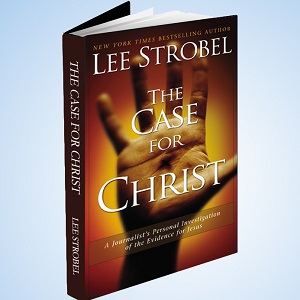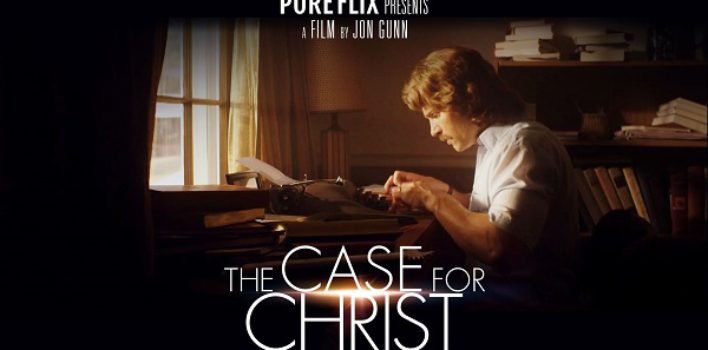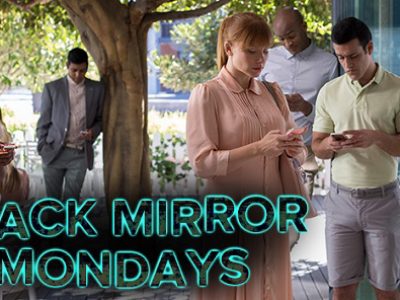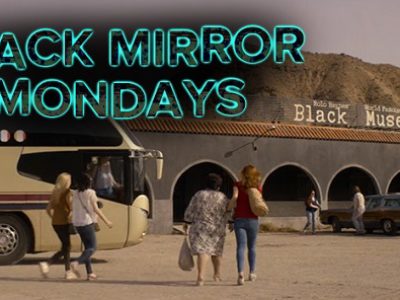Review| The Case for Christ
 There’s a movement taking place in American culture that is truly significant from a worldview perspective. Relativistic phrases such as, “That’s true for you but not for me!” or “That’s just your interpretation!” are steadily becoming quotations of the past once more. Postmodernism is being discarded as our heavily politicized society starves for the truth, determined to fact-check everything a politician or representative says and looking to label the next piece of information as “fake news.” In the realm of film, an intriguing amount of investigative dramas have been released in the past few years, with Tom McCarthy’s Spotlight at the top of the pile, winning Best Picture at the 2015 Academy Awards. Our culture’s refreshed desire for truth echoes throughout our latest films, TV shows, novels, and shared social media statements, with everyone seemingly taking it upon themselves to get to the bottom of the latest story or idea.
There’s a movement taking place in American culture that is truly significant from a worldview perspective. Relativistic phrases such as, “That’s true for you but not for me!” or “That’s just your interpretation!” are steadily becoming quotations of the past once more. Postmodernism is being discarded as our heavily politicized society starves for the truth, determined to fact-check everything a politician or representative says and looking to label the next piece of information as “fake news.” In the realm of film, an intriguing amount of investigative dramas have been released in the past few years, with Tom McCarthy’s Spotlight at the top of the pile, winning Best Picture at the 2015 Academy Awards. Our culture’s refreshed desire for truth echoes throughout our latest films, TV shows, novels, and shared social media statements, with everyone seemingly taking it upon themselves to get to the bottom of the latest story or idea.
But how many licks does it truly take to get to the center of a Tootsie Pop? How much evidence for or against something is enough evidence for a proper conclusion? And what if this specific Tootsie Pop held the truth for an entire belief system? Pure Flix decided to cast their line into the pond of investigative dramas and tackle this idea with John Gunn’s The Case for Christ, which retells the true story of Lee Strobel’s life as an investigative journalist for the Chicago Tribune. If you know who Lee Strobel is – and even those who aren’t Christians may know of his name – then you know he’s the author of some of the most popular Christian nonfiction titles on bookshelves around the world. The most famous of these titles is his first work, “The Case For Christ,” which is the collection of research that Strobel gathered as he set out to prove that Christianity was a flawed belief system, and is the basis for Gunn’s film.
 One might wonder – and rightfully so – how a film can be made from a nonfiction title that primarily focuses on “just the facts” of Christianity. I wondered that myself, and my reluctance regarding The Case for Christ grew as the release date came closer. Like countless others, I have written about and discussed my dislike for modern “faith-based” films, and how I believe that the bulk of them not only neglect to treat the subjects they choose to address with thoughtfulness and respect, but the usual one-dimensional characters aren’t given any love or value either, instead becoming advertising billboards and strawmen. This leaves the audience with only the poorly-delivered message and “facts” that the movie presents to latch onto. I would hope that one could understand my concerns for Pure Flix spinning a feature film out of material that may be best suited to a documentary instead of a potential God’s Not Dead rehash.
One might wonder – and rightfully so – how a film can be made from a nonfiction title that primarily focuses on “just the facts” of Christianity. I wondered that myself, and my reluctance regarding The Case for Christ grew as the release date came closer. Like countless others, I have written about and discussed my dislike for modern “faith-based” films, and how I believe that the bulk of them not only neglect to treat the subjects they choose to address with thoughtfulness and respect, but the usual one-dimensional characters aren’t given any love or value either, instead becoming advertising billboards and strawmen. This leaves the audience with only the poorly-delivered message and “facts” that the movie presents to latch onto. I would hope that one could understand my concerns for Pure Flix spinning a feature film out of material that may be best suited to a documentary instead of a potential God’s Not Dead rehash.
But even with such a sour history of films and creative decisions, redemption is always possible, even for a studio like Pure Flix. As strange as it is to say, Pure Flix’s The Case for Christ not only presented the facts featured in Strobel’s book in a respectable, fluid manner, but also took care with its presentation of the lives of both Lee and Leslie Strobel.
The screenplay is remarkably solid for a film of this nature. Lee Strobel handpicked Brian Bird to write the script, and Bird took his time with interviewing the Strobels to make sure the details of their lives were as true to form as the production would allow. Because of this dedication, the characters of both Lee and Leslie Strobel (portrayed by Mike Vogel and Erika Christensen respectively) are truly three-dimensional, allowing audiences to properly empathize with them. The chemistry between Vogel and Christensen was very natural and didn’t feel contrived. The best interactions were with Strobel and his writing team at the Tribune, which, again, felt like conversations one would easily find or overhear in an office atmosphere, and added a good deal of humor to a serious tale.
What is significant about this film is that it is largely centered on an atheist, not a Christian. The last major productions we’ve seen from Pure Flix have not been kind or gracious with their portrayals of atheists, spinning their characters as vile, aggressive, and unreasonable. But with The Case for Christ, we see Strobel not only embracing his atheistic worldview while asking reasonable questions during his investigation, but we see scenes that showcase his love towards his family, including some warm scenes with his wife and daughter. Yes, there are scenes of intense conflict – especially involving Lee and Leslie as his investigation nears its climax – but these are scenes that we could easily see from people adhering to any worldview, not just Christianity versus atheism. While the intensity of these scenes could have easily been ramped up to match real-life events of the Strobel’s lives, what we’re provided is enough to sell the moment, and the eventual payoff in the resolution feels earned because the audience was given well-acted and well-written scenes. I couldn’t help but contrast these scenes to scenes from other “faith-based” films such as Fireproof, and how real the relational conflict presented in The Case for Christ felt in comparison.
 However, this isn’t to say that the film isn’t without fault. There are some typical tropes utilized, such as the “wise black woman” that ministers to Leslie (not dissimilar to examples found in War Room, Miracles from Heaven, or The Shack, just to name a few). There are also scenes in a church where we have drawn-out segments of sermons, and repetitive scenes of prayer when just one would suffice for establishment. But don’t expect any Newsboys concerts, don’t expect deathbed conversions, and don’t expect dancing around adult issues like alcoholism instead of displaying them full-frontal. In a sense, much of The Case for Christ is the antithesis of “faith-based” films. For those praying that the quality of these kinds of films increases to the point where we’re not embarrassed to show them not only to our churches, but to people of differing worldviews, The Case for Christ may be your answer to that prayer.
However, this isn’t to say that the film isn’t without fault. There are some typical tropes utilized, such as the “wise black woman” that ministers to Leslie (not dissimilar to examples found in War Room, Miracles from Heaven, or The Shack, just to name a few). There are also scenes in a church where we have drawn-out segments of sermons, and repetitive scenes of prayer when just one would suffice for establishment. But don’t expect any Newsboys concerts, don’t expect deathbed conversions, and don’t expect dancing around adult issues like alcoholism instead of displaying them full-frontal. In a sense, much of The Case for Christ is the antithesis of “faith-based” films. For those praying that the quality of these kinds of films increases to the point where we’re not embarrassed to show them not only to our churches, but to people of differing worldviews, The Case for Christ may be your answer to that prayer.
As someone who has an investigative mind and has also had his faith strengthened by reading the works of apologists and Christian thinkers such as Strobel, the subject matter of this film hit home to me. I’ve read quite a few of Lee Strobel’s works. I’ve also listened to a lot of his presentations, and I was even given the opportunity to talk with him briefly before. I’ve long respected the man and appreciated his own story of redemption, and about how God led him through a seriously dark and tumultuous time. In knowing these details, I wasn’t sure how Pure Flix would be able to display just how bad things were in the Strobel home, because there are some things that Lee recalls in his presentations that just aren’t PG material. But we don’t need to see Strobel in a drunken rage, punching holes in the wall. We don’t need to hear the vulgarities he undoubtedly spewed to his loved ones in his lowest points. The Case for Christ steers away from the more PG-13 or even R-rated material that could have been, but still gives us a respectable view into the lives of two unbelievers, showing us how each came to the Christian faith in their own personal way, finding truth and redemption in Jesus Christ. In order to love a character, especially one based on a real-life counterpart, you have to love them enough to show them at their lowest points too.
As we see in the New Testament, Jesus never presents truth without love. In performing acts of service, the people He healed and ministered to paid attention to Him because they saw how His incredible words matched His unprecedented actions. This aspect of Jesus is something that most evangelistic “faith-based” films have seemingly forgotten. With most of these works, the message becomes the medium, and we have nobody to connect to. This is contrary not only to how the scriptures present proper witnessing, but also to how we discern good stories from bad. “Show, don’t tell” is a technique that any great storyteller understands and employs. Instead of telling an audience the details of a specific situation or what to think regarding the message the movie promotes, we should be shown this through the lenses of the main characters as we witness their actions, thoughts, and feelings. By properly loving the characters we create through our art, we are able to speak to an audience willing to listen to what we have to say. Ephesians 4:15 tells us that by speaking the truth in love, we grow up and become more like Christ – the head of the church.
 It’s not enough to just have the facts. We need to love those whom we give the facts to. There’s an argument to be made that Strobel set out on his journey to discover the truth about Christianity not because he was arrogant, but because he loved his wife and children enough that he didn’t want them believing a lie. Once she converted to Christianity, we witness Leslie’s unsuccessful attempts at reaching out to her husband paired with her newly activated prayer life, but we see the effects of that love at the film’s conclusion. Throughout Strobel’s journey, he met many individuals that presented the facts to him not with condescension, but with humility, patience, and understanding.
It’s not enough to just have the facts. We need to love those whom we give the facts to. There’s an argument to be made that Strobel set out on his journey to discover the truth about Christianity not because he was arrogant, but because he loved his wife and children enough that he didn’t want them believing a lie. Once she converted to Christianity, we witness Leslie’s unsuccessful attempts at reaching out to her husband paired with her newly activated prayer life, but we see the effects of that love at the film’s conclusion. Throughout Strobel’s journey, he met many individuals that presented the facts to him not with condescension, but with humility, patience, and understanding.
Truth itself doesn’t change lives. We see this in the examples of the hundreds of thousands who go out to angrily protest for or against causes, and those who engage in heated debate on social media or comments sections. The truth presented in those unfortunate cases never seems to take root in the hearts and minds of those that need to be reached. But paired with love, truth can change a whole world. Jesus knows this. The Strobels know this. We know this. And finally, after much trial and error, Pure Flix finally knows this too.







